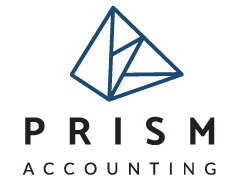High income earners who have multiple employers, or who have changed their employers during the income year, may have Excess Concessional Super Contributions as a result of their employers having to contribute compulsory Super Guarantee amounts at 9.5% of ordinary time earnings (OTE), up to a maximum contribution base. That means, if your combined ordinary time earnings from all your employers is more than $263,158, it is likely that your concessional super contributions will breach the $25,000 cap.
If that happens, the excess amount is added back to your Taxable Income when your Tax Return is lodged and processed by the ATO, and is taxed at your marginal tax rate. In addition, you will have to pay the Excess Concessional Contribution (ECC) Charge on the amount of excess. The tax liability will be offset by 15% to reflect the amount of tax already charged on your super contributions within the superfund.
As a result, you may be surprised by having to pay more tax than was estimated when your tax agent prepared your Tax Return. When your Tax Return is lodged, the ATO uses data reported by your superfund about your contributions and automatically amends your Taxable Income and the amount of tax payable if you exceed your concessional cap.
For 2019 and earlier income years, it was impossible for employees to avoid exceeding the concessional cap as each of their employers must comply with their super guarantee obligations. Employers failing to contribute the minimum super guarantee amounts would have a Super Guarantee Shortfall and be liable for Super Guarantee Charge (SGC). Fortunately, the law has been changed to rectify this issue.
Super Guarantee Opt-Out for high income earners with multiple employers
From 1 January 2020, high income earners who have multiple employers during the year can apply to opt out of receiving super guarantee (SG) from some of their employers to prevent inadvertent concessional cap breaches.
To opt out, you need to apply for a Super Guarantee Shortfall Exemption Certificate with the ATO to release one or more of your employers form super Guarantee obligations.
To issue the certificate, the ATO must be satisfied that:
- Your employers compulsory super contributions are likely to exceed your concessional contribution cap;
- You will still have at least one employer to make compulsory Super Guarantee contributions; and
- It is appropriate to issue an exemption certificate in your circumstances taking into account the levels of contributions that would continue to be received and the effect of any other certificates already in place.
It is important to remember that your employers are not obliged to stop contributing super guarantee payments even if an exemption certificate is issued, so it is best to discuss the effect of exemption with your employers.
The application must be made by the employee. An employer cannot apply for an exemption certificate to make themselves exempt from super guarantee obligations.
If you would like to apply for an exemption, you must submit your application to the ATO in the approved form at least 60 days before the first day of the first quarter that the application relates to.
An exemption certificate can be issued for up to four quarters in one financial year. A separate application is required for each financial year.
For more information, check the ATO link.
Disclaimer: All the information provided on this website is of general nature and does not constitute tax, legal or financial advice. It does not take into account your personal circumstances and is not intended to replace consultation with a qualified professional.

